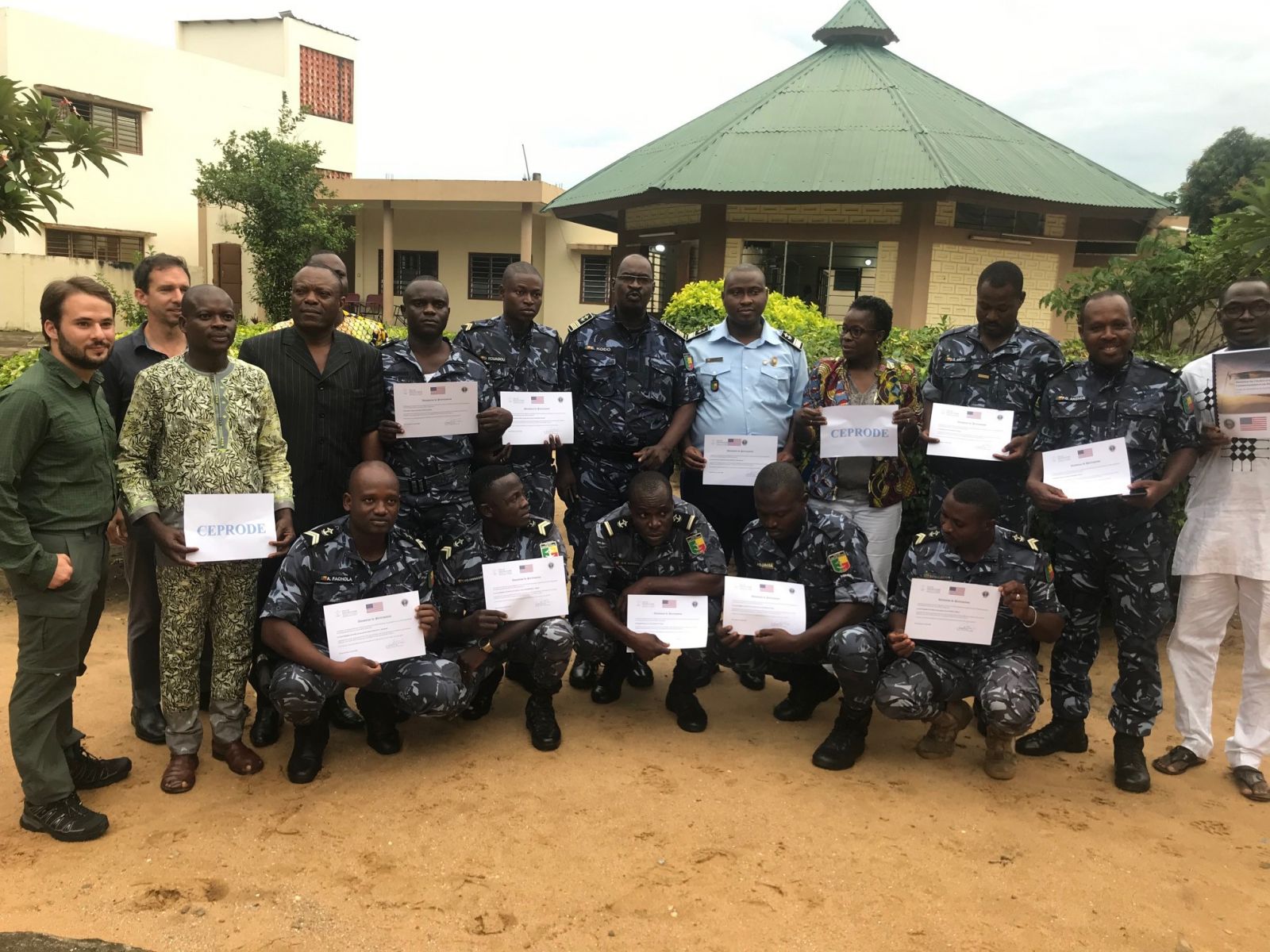When START senior researcher Barnett Koven and University of Maryland professor John McCauley traveled to the west African nation of Benin to conduct training on community-oriented policing, they were not expecting that training to be abbreviated by an insurrection.
.jpg)
As a part of the project Community-oriented Policing and Community Engagement in Benin, Koven and McCauley went to Benin to provide training to officers of the Beninese Special Border Surveillance Unit (Unité spéciale de surveillance des frontiers, USSF), a special forces unit of the Republican Police.
“These USSF officers were all picked because of their incorruptibility, but also their excellence in a wide array of police functions,” Koven said. “So the idea behind the USSF is that this is going to be an elite force that will protect the Beninese borders against all kinds of threats. For example, there are four different jihadist groups linked to al-Qaida or the Islamic State operating in the north on the borders with Burkina Faso and Mali, and there’s also a lot of smuggling going on along the eastern border with Nigeria.”
The purpose of the training was to encourage productive relationships between USSF officers and local communities in order to prevent the rise of violent extremism in Benin, which is accomplished through three principal activities: community policing training, leadership training and community outreach.
“The key training is a week-long course on community-oriented policing for the USSF officers,” Koven said. “These officers may be elite, they may be super competent, and indeed they were, but there’s only about 275 of them. For even a small country, that’s a woefully insufficient number. So the goal is to train them to interact better with the communities in the areas they’re responsible for, so that the communities can serve as a force multiplier.”
“Nomadic herders for example, or traders, have to have good situational awareness—not just where they are in the moment, but also where they’re going. By tapping into existing community networks like these, that’s how a force like the USSF can be in the right place at the right time to interdict criminal activities,” Koven said.
The project is also intended to help researchers better understand border community grievances, community-oriented policing and counter-smuggling operations, as well as terrorism and transnational organized crime in Benin.
“The problem in Benin is that there’s a very low regard amongst the population for the police, who were historically perceived as eminently corrupt,” Koven said. “The police have totally reorganized, and it’s very clear that these elite forces, at least, are different from the past. So the idea behind this project is to help the police build good relations with the community, and also help the police gain valuable insights into the areas they’re responsible for.”
The training involved classroom training on community-oriented policing for the USSF officers, as well as training on the role of the police force for community members, who then came together with the officers for an ICONS simulation.
“The officers and community leaders are divided up into mixed teams, and they play different roles in the simulation,” Koven said. “If they cooperate across roles, then they get beneficial outcomes in terms of countering violent extremist threats, and if they don’t cooperate, they get very different outcomes. So it further substantiates what’s taught in the classroom, but it also gets the officers and the community members working together on the same team, even if just for a simulation exercise.”

Koven went to Benin on June 10, but after violence broke out on June 15 between political protestors and police in the center of the country, the officers he was working with were deployed to aid in subduing the violence, and Koven was forced to return home.
“I was very disappointed,” Koven said. “The USSF officers we were working with were phenomenal. They understood why they were there, why this was useful to them, and they were really committed to the mission, despite the fact that they’re not well-resourced, and they’ve got a challenging task ahead of them.”
In spite of his disappointment, Koven is eager to go back to Benin as soon as possible, to continue the training.
“I love these types of training events because you get to learn a lot about the officers you’re working with, and the local conditions,” Koven said. “It’s a shame we didn’t get to spend more time with them. Hopefully we’ll be able to pick back up where we left off in the very near future.”
